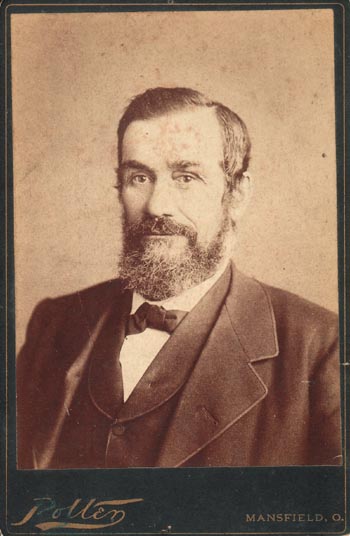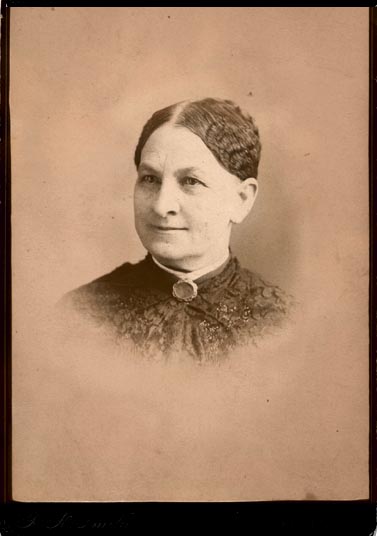- - - Shelby Pioneer Families - - -
Jackson Township, all spent some years at a mining camp along the Yuba River of
California during the Gold Rush.
|
Sacramento California, August 9th, 1849
Dear Father and
Mother, We arived here safe this morning and are all enjoying |
| We
will now tell you about the mountains. First was the Rockey Mountains,
on the pass of this mountain we was nine thousand Eight hundred and fourty feet above the lavel of the sea, covered with snow, on the 24 of June we went in to a Snow cave one hundred yards where it was fifteen feet deep, the water passed through it. Water twenty feet wide two feet deep, it formed a butiful arch ten feet high, a solid chunk of ice underneath. This mountain is nothing to compair with the next mountain, Saranavada or California mountain. This mountain is fifteen thousand five hundred feet above the lavel of the sea. This mountain is eighty miles from the Sacramando City. We past over snow twenty feet deep the 11th of August, we comenced going up this mountain for twenty miles, not strait until the last three miles. We took a rope sixty feet long tied to the tong and fifty men took a hold of it, drawed it twelve feet at a time over stones four feet high. The Mormans passed on snow last spring over rocks that can now be seen Thirty feet high. Thousands of Provisions have been throwed away between this and Fort Lovamia. For the last Six hundred miles it will average one waggon to the mile that was left on the road broken and want of teeming and folks went to packing in the Mountains on muels. The muls was rundown so that they was not able to draw it. There is 24 Hundred waggons laying at Fort Hall nine hundred miles from this. Not the one fourth of those can ever reech this place. The grass is not sufficient for muels to feed. I will now draw your attantion to the butiful valley of the Sacramento where the gold abounds in abundence. We have not commenced diging yet but will in a few days. I shal give you a correct histery of the gold of this place. It was found on the vally for five hundred miles long eighty in width. In the dry diggings it is found waying from one to twenty eight ounces. It is dug up in pieces like melted lead, it has been caused by a burning volcano in the mountain. An explotion takes place, throwen over the different parts of the Sacramanto vally. We saw a few peices a few days ago, waying 4 oz. being worth 64 Dollars. An estimate had been made of the amount of money acumulated per day. By each man 30 Dollars per day. By present appearance we have not got the least doubt but what we can make thirty dollars per day. Do not trouble yourselves about us now our troubles are all over. We have passed through life and death, and are now at the appointed place among a Land of Plenty provition and Thousand to spare but very dear but not dearer than in the States in proportion to the quantity of money. Pork is $40 Beef $10 per barrel Flower $16 to $18 per barrel Sugar from 12 to 14 cts per lb. Coffee from 12 to 14 cts per lb. Molasses $1.00 per gal. Rice per lb 10 cts. Barley 50 cts per bushel. Dried apples 70 cts. per lb. Peaches $1.00 per lb. Potatoes 50 cts. per lb. Beef 50 cts per lb. Butter $1.00 per lb. Axses $2.50 Shovels $3.00 Picks $3.00 and clothing as cheap as it is in the States. Five vessel land at this lace every day. Sacramanto City is 150 miles from Sanfrancisco, which is on the Sea Shore. Sacramanto City contains three Hundred Tents. They are composed of muslin. Boards there are non. They offer Five Hundred Dollars per Thousand feet. For diging gold they youse 1 crobar, cost $4. 1 tin pan 8 dollars. We started from the States with two waggons. Fourty five hundred an the Two waggons and landed here with eight hundred and one waggon. One wagon and one set of Harniss sold for $30 at the North Branch of the Plat River to the Mormans that kept the Ferry then we put 6 muels in the wagon. We have nine muels and poney. Did not lose a solotary animal. |
|
Hundreds have been
stolen by Indians. Six muels and a wagon is worth from Eight From the states
line to the Mormans it is rising over 1400 miles and from their F. and I. Bricker Befor you strike
the Saranavodo or California Mountains there is fine Timber from |
 |
 |
|
|
|


Copyright © 2000 - 2025